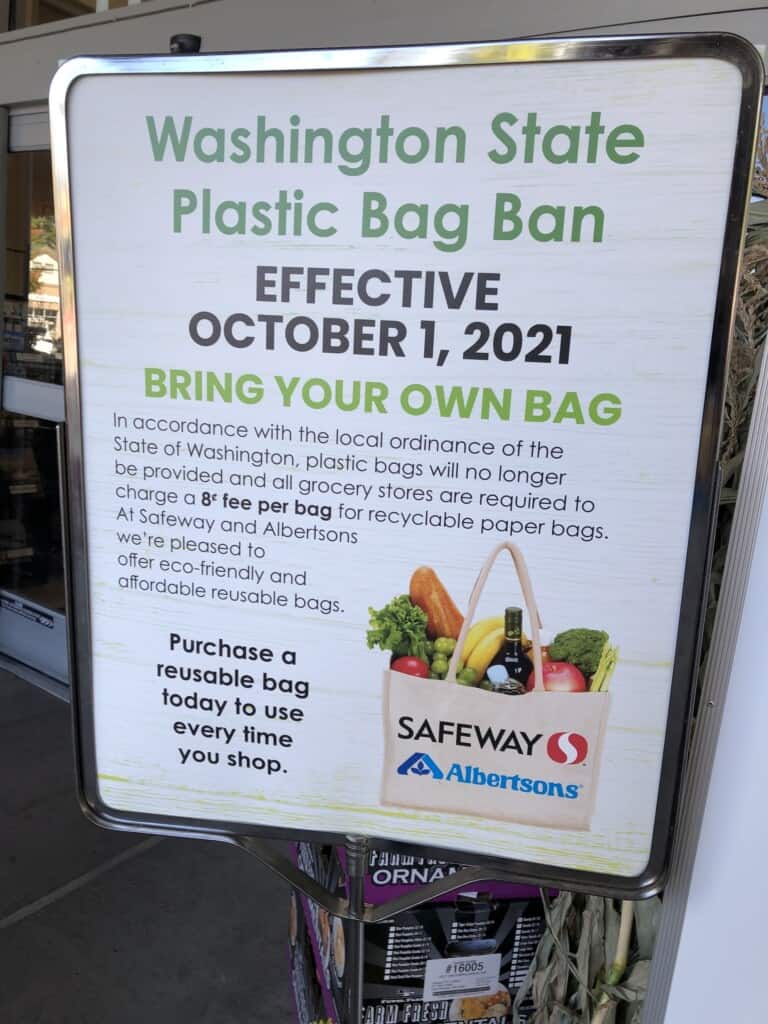Environment
Single-use plastic bag ban returns Friday
Drag those reusable bags out of the closet or from under the back seat. Beginning Friday, the plastic bag ban returns, this time at the state’s behest.
Gig Harborites already know the drill. The city imposed a Bring Your Own Bag ordinance that took effect on June 18, 2019. It continued until March 27, 2020, when Mayor Kit Kuhn temporarily lifted it because grocers were running out of paper bags and concerns that reusable bags could become contaminated with covid.

A sign outside of the Gig Harbor Albertsons alerts shoppers that beginning Friday they’ll need to start using reusable bags again. Ed Friedrich / Gig Harbor Now
Gov. Jay Inslee then outlawed single-use plastic bags beginning Jan. 1, but postponed its application because there weren’t enough compliant bags available, according to the Department of Ecology. The delay has been rescinded.
Many Gig Harbor shoppers had switched to reusable bags, as Ecology now recommends. Some have continued using them until this day. Others reverted to paper or plastic. They’ll continue to have that choice, but it will cost them.
Grocers can offer compliant paper or plastic bags for which the law requires they charge customers 8 cents apiece. This is not a tax. It is a sale kept by the merchant to encourage shoppers to bring their own bags and to recoup the costs for more durable compliant bags. Food banks and people receiving food stamps, WIC or SNAP aren’t subject to the 8-cent fee.
“Single-use plastic bags are not easily recyclable, which makes managing them at the end of their lives nearly impossible,” said Laurie Davies, manager of Ecology’s solid waste management program. “Reducing their use will protect our rivers and streams, and help our recycling system run more efficiently.”
Plastic bags threaten human health, wildlife and the environment by releasing harmful chemicals when they are produced, used, burned or slowly disintegrate into microscopic particles. They also clog sorting machines, putting workers in danger.
Some single-use plastics are exempt from the law, including those used to wrap meat and produce, for prescriptions, and newspaper and dry-cleaning bags.
